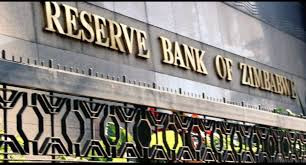THE Zimbabwe Coalition on Debt and Development (Zimcodd) yesterday called on government to institute an official debt audit to come up with correct figures of the country’s indebtedness.
by VENERANDA LANGA
Zimcodd, in their position paper for the Africa Confidential Zimbabwe 2016 Conference: Rebooting and Rebuilding, which began in London yesterday, said there was need to ascertain through an audit how Zimbabwe accrued an $8,6 billion debt in a process that is transparent and inclusive of the public.
Finance minister Patrick Chinamasa is also in London attending the conference where he was interviewed on BBC’s HardTalk programme about Zimbabwe’s indebtedness amidst calls by demonstrators that President Robert Mugabe’s regime must not be supported.
Zimcodd said there was need to ascertain the social impact of the loans on ordinary citizens.
Keep Reading
- Chamisa under fire over US$120K donation
- Mavhunga puts DeMbare into Chibuku quarterfinals
- Pension funds bet on Cabora Bassa oilfields
- Councils defy govt fire tender directive
“Zimcodd calls for an official debt audit so as to come up with a true picture of the debt stock and to know who is owed and how much is owed,” the organisation said in a statement.
“The process has to be public, transparent, all-inclusive and participatory, and further determine the social and economic impact of the loans to the ordinary citizen and inform any future loan contraction process.”
It said although the ratification of the Public Debt Management Act was welcome, there was need to limit the Finance minister’s borrowing powers by strengthening Parliament’s oversight role.
“This will reduce both illicit and licit financial flows in Zimbabwe, thereby allowing the country to deal with its debt question effectively. Furthermore, the establishment of the Zimbabwe Debt Management Office is a welcome development. However, it should be an autonomous institution for effectiveness.”
Recently the Reserve Bank of Zimbabwe revealed that the country lost $3 billion through illicit financial flows between 2009 and 2012, while President Robert Mugabe also disclosed $15 billion diamond revenue was lost through pilferage.
Zimcodd’s position paper also recommended that any debt cancellations should not infringe on social and economic development of citizens, as debt cancellations are often market-based and entail cutting on government expenditures and social services, which often affects civil servants and provision of health and education.






